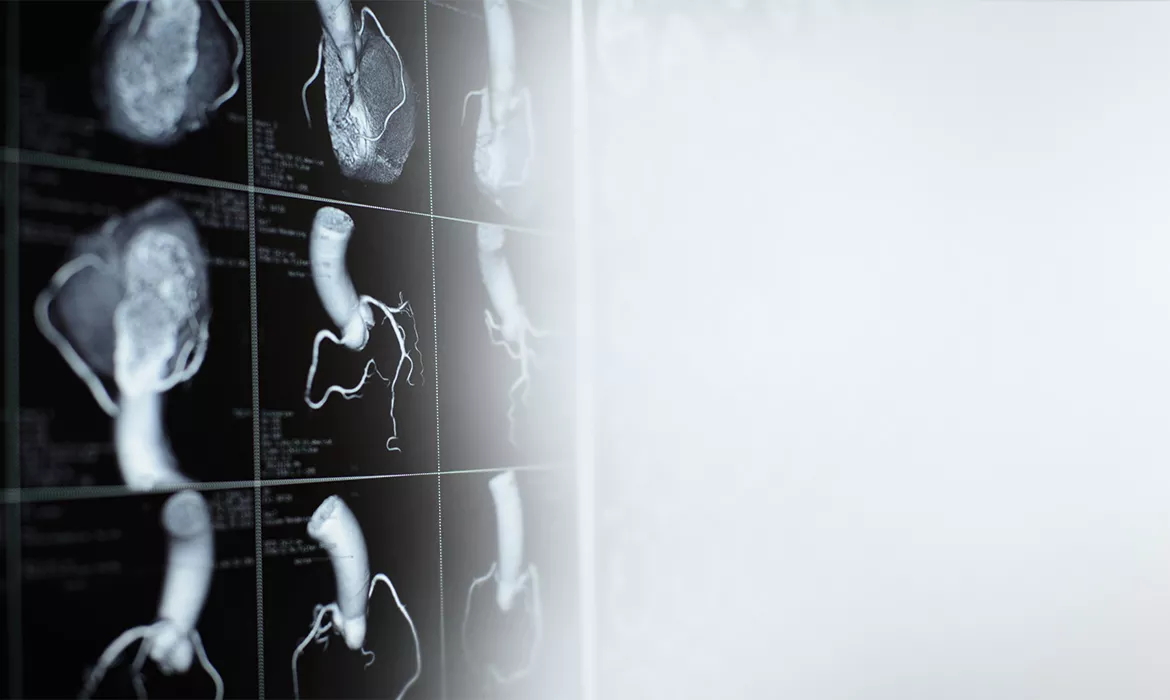
Advanced Cardiac Imaging
Using powerful magnetic fields, MRI can non-The information obtained during a cardiac
invasively evaluate the anatomy and function of the
heart.
MRI study often cannot be obtained by other
cardiac imaging technologies. It is available as a
joint program with the Heart Center of MetroWest
and MetroWest MRI.
Cardiovascular Computed Tomography is an
emerging technology that can aid in the non-
invasive evaluation of coronary artery disease.
Our physicians can arrange for coronary CT
angiography when other imaging modalities do
not provide the necessary information.
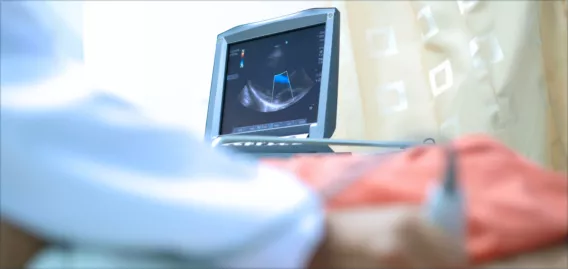
Echocardiography
An echocardiogram is a test that uses sound waves to take pictures of the heart, obtaining important information regarding your heart’s size and function. It is especially useful in aiding the management of patients with coronary artery disease, valvular heart disease, congestive heart failure and congenital heart disease. Our Echocardiography Laboratory is staffed by cardiologists who are board certified by the National Board of Echocardiography.
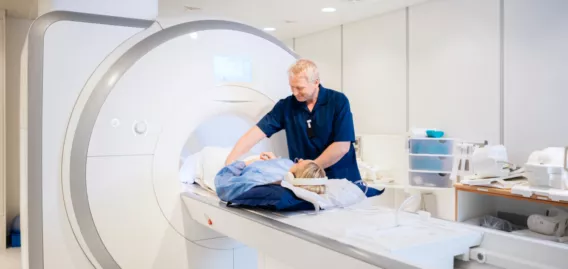
Nuclear Imaging
Comprehensive cardiac imaging services enable our physicians to provide state-of-the-art diagnostic evaluation and follow-up treatment for our patients. In many circumstances, pictures need to be taken of the heart following a stress test in order to obtain more detailed information. A Nuclear stress test is a non-invasive test that can determine whether there are blockages in the coronary arteries, and whether there has been a previous heart attack. It also provides powerful prognostic information in patients with known heart disease. Our Cardiac Imaging Laboratory is directed by cardiologists who are board certified in Nuclear Cardiology.
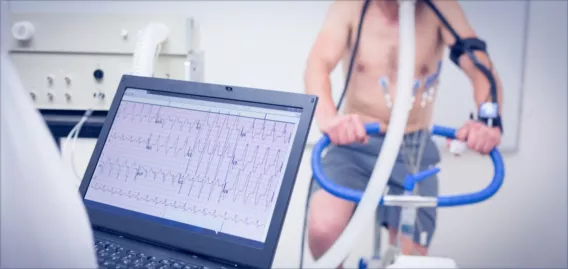
Stress Testing
Stress testing is a fundamental diagnostic exam to assess cardiac function and health. It is commonly used to determine whether coronary artery disease is present and can give powerful prognostic information in patients with known heart disease. It also can be used to determine your exercise capacity, problems or to determine the effects of exercise on your heart rhythm. A cardiologist will interpret your test and will make recommendations regarding necessary follow-up.
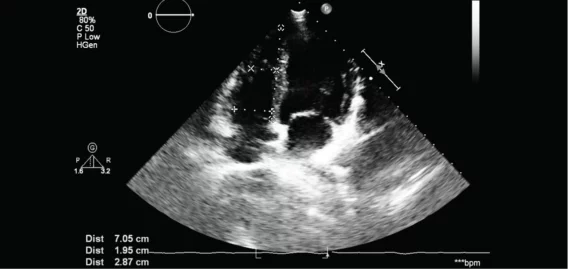
Transesophageal Echocardiogram
A transesophageal echo is a specific type of cardiac ultrasound that create pictures of the inside of your heart using sound waves. The cardiologist places a flexible tube into your esophagus. The test requires sedation to be performed by an anesthesiologist. A transesophageal echo enables the cardiologist to view the valves within your heart and to rule out a blood clot in your heart.
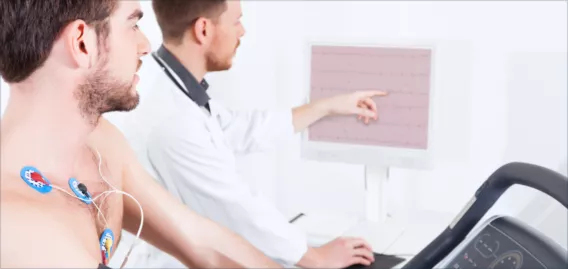
Stress Echocardiography
A stress echocardiogram is the combination of a stress test and echocardiogram. A standard stress test is performed followed by an echocardiogram to assess the function and structures of the heart after exercise.
Vascular Testing
The Heart Center of Metrowest provides
the following vascular ultrasound
imaging examinations:
- Imaging of the carotid arteries in the neck that can develop blockages which increase the risk of stroke
- Imaging of the abdominal aorta in patients at risk of an aneurysm
- Imaging of the kidney arteries for blockages which can predispose patients to kidney failure and/or difficult to control hypertension
- Imaging of the leg veins to exclude the presence of DVT (blood clots)
- Imaging of the leg veins to assess for reflux or leaking in the leg veins (venous insufficiency). This condition is a very common cause of ankle swelling and also leg symptoms such as heaviness, aching and burning. When this condition is present and the patient’s symptoms persist despite therapies such as leg elevation and compression stockings, the Heart Center can then offer an ablation procedure. A vein ablation involves directing a very small catheter (wire) into the leaking leg vein and delivering radiofrequency (heat) to the vein. This procedure very often will then significantly improve patient’s leg symptoms and may also help their swelling.
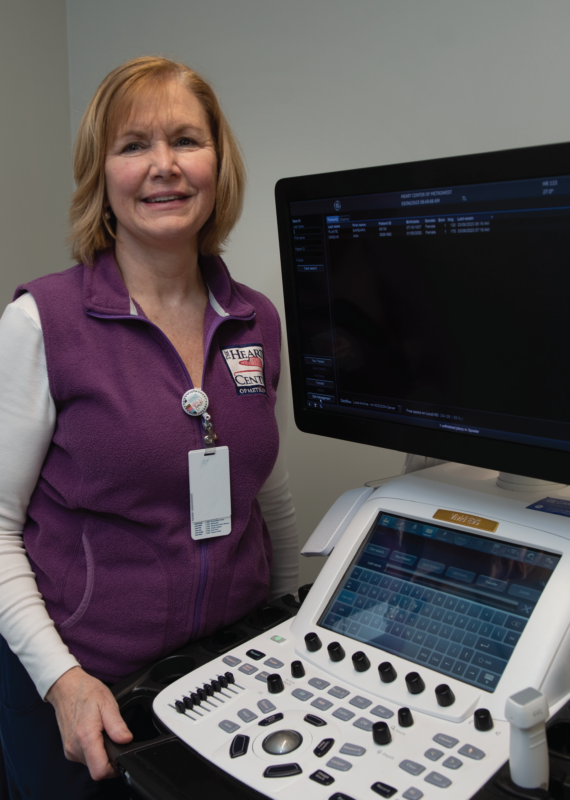


Call Us Today!
We pride ourselves on expertise, accessibility, and staying on the leading edge for prevention, diagnosis and treatment of heart disease. It is our honor to serve you.
CONTACT US